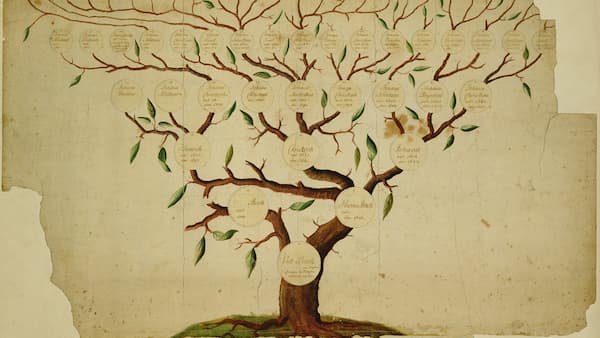The Bach family was enjoying happy times in Weimar, and Maria Barbara was expecting again in 1713. On 21 February 1713, Bach was lodged in the castle at Weissenfels to celebrate the birthday of Duke Christian, and we know that his Cantata No. 208, better known as the “Hunt Cantata”, was performed on that occasion.

The Bach family tree © aco.com.au
Only two days later, on 23 February, Maria Barbara gave birth to twins, but they appeared to have been born prematurely. It was immediately clear that the children would not survive. The heartbroken parents rushed to have them baptised, and Johann Christoph Bach died on the very same day he had been born. His twin sister Maria Sophia Bach lived for about 3 weeks but eventually died on 15 March 1713. In response to this tragedy, Johann Sebastian intensified his work schedule and kept composing music not only for the Duke but also for the glory of God. Maria Barbara, meanwhile, fell into a state of depression.
Johann Sebastian Bach: Motet: “Ich lasse dich nicht,” A159
Maria Barbara Bach was born in the small town of Gehren in 1684. Her father, Johann Michael Bach, was an organist and town scribe and a cousin to J.S. Bach’s father. Maria Barbara was orphaned at an early age and went to live with relatives in Arnstadt, where she met Johann Sebastian after his appointment as church organist in 1703. Since they were related, they lived in the same house for a period of time. There is a funny anecdote of Bach being reprimanded by Arnstadt authorities for inviting a “strange maiden” into the church organ loft to “make music.” I think it is reasonable to assume that the woman in question was Maria Barbara. I am sure the husband and wife remembered all the happy and good times during this period of tragedy and loss. However, things quickly became more complicated at work as the ducal feud between brothers escalated and made for an increasingly tense and unpleasant work environment.
For more of the best in classical music, sign up for our E-Newsletter
